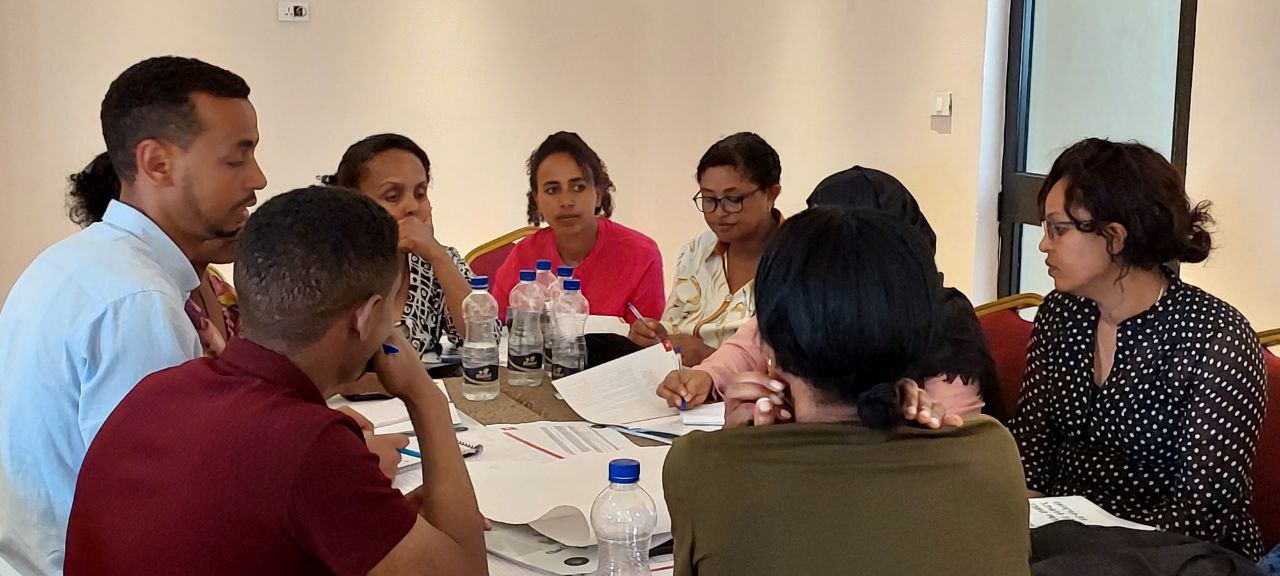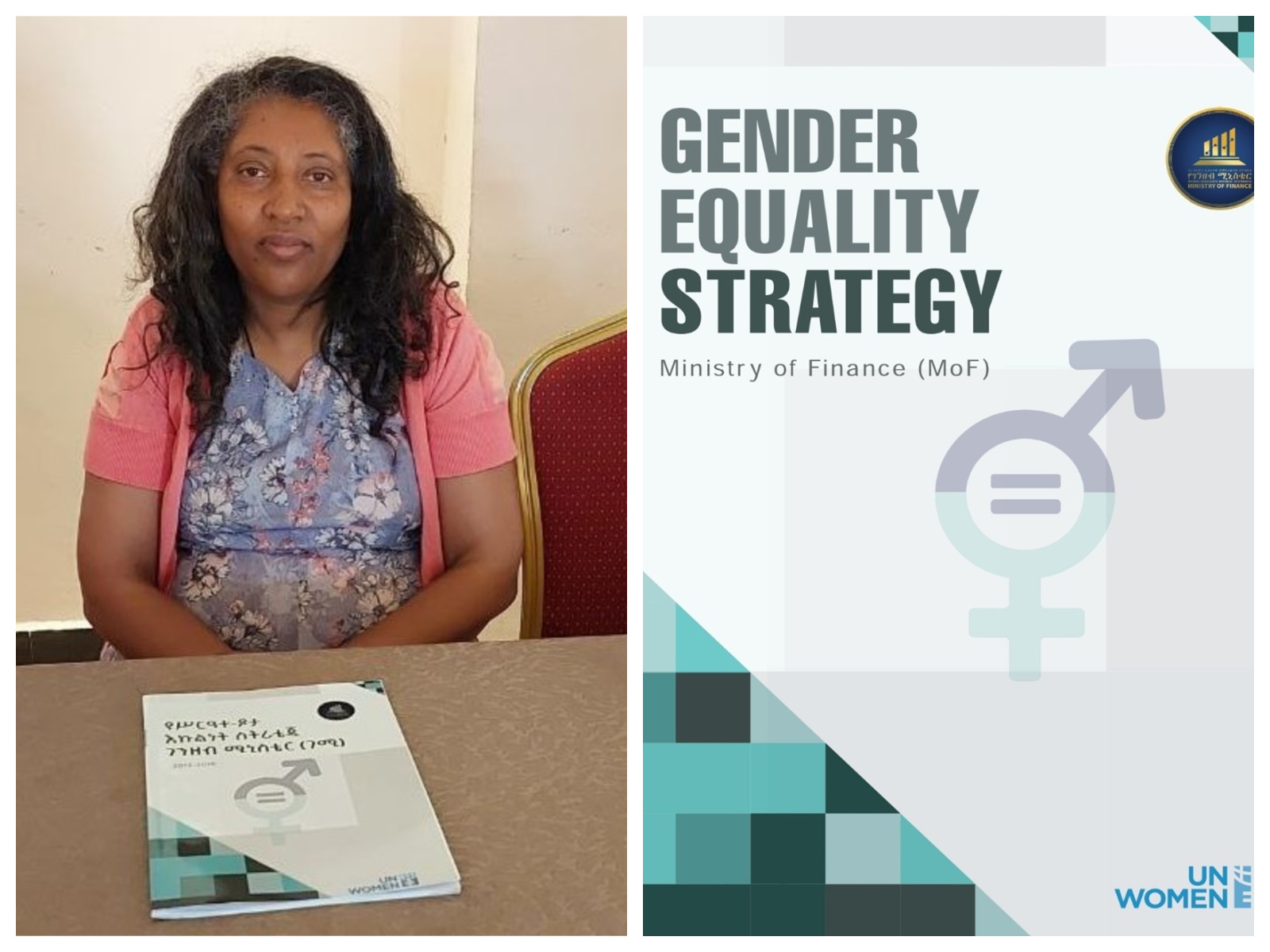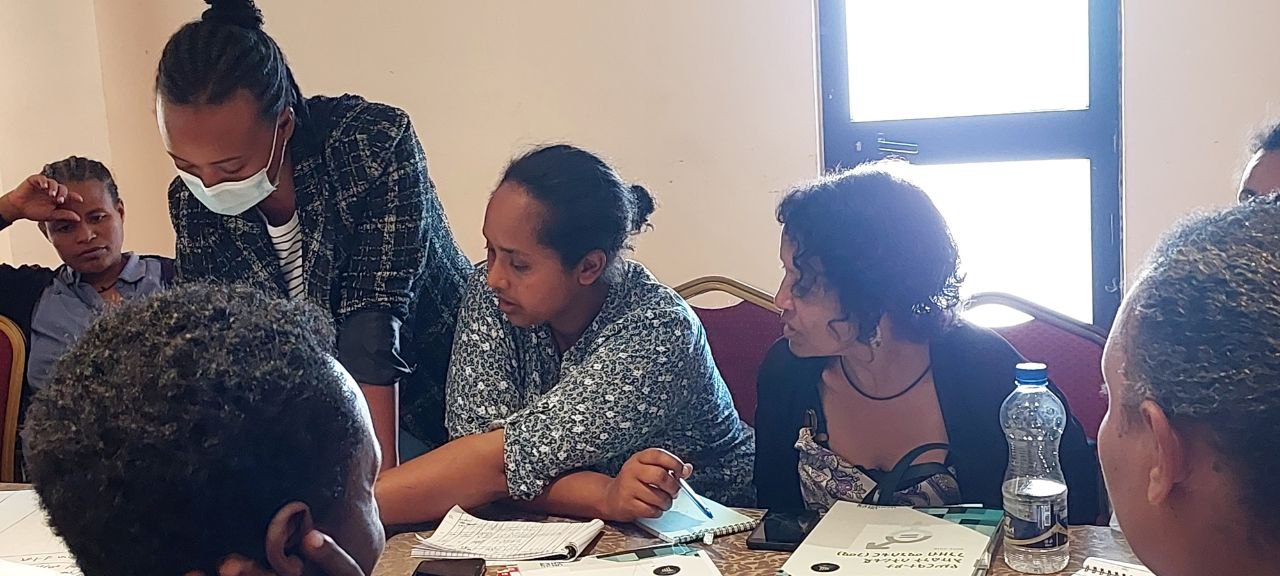Ministry of Finance and UN Women Join Forces to Accelerate Gender Equality Agenda
Date:

The Ministry of Finance (MoF) in Ethiopia in partnership with UN Women, has established a technical committee to accelerate implementation of the MoF’s Gender Equality Strategy developed with the support of UN Women. Following the endorsement of the Gender Equality Strategy in 2023, UN Women organized a two-day workshop from 16 - 17 February 2024 , in Adama, Ethiopia, for 27 senior experts from 25 divisions of the MoF. The key outcome of the workshop is the establishment of a technical committee with 27 members to oversee the effective implementation of the strategy. One of the significant outcomes is the Ministry of Finance's demonstrated commitment, ensuring leadership towards the priorities of women and girls through coordination among departments for enhanced gender-responsive planning and budgeting.
During the workshop, committee members deliberated on possible bottlenecks hindering the strategy's implementation, including inefficient coordination within the MoF’s divisions and a lack of political will among higher-level officials. However, with the establishment of the committee and proper coordination, members expressed optimism about alleviating these bottlenecks.

The committee established its structure and selected a chairperson, a deputy chairperson, and a secretary. Ms. Rahel Meselle, Executive of Women and Social Affairs Inclusive Implementation at MoF, was appointed as the chairperson, and Ms. Hanna Mequanint, the Senior General Budget Expert from the Budget Department, as the deputy chairperson.
Ms. Rahel Meselle highlighted that the establishment of the committee is one of the key strategic priorities of the MoF, “Given the MoF’s broad mandate, which includes designing of macroeconomic policies and overseeing their implementation, ensuring gender responsiveness is crucial. To this effect, the technical committee would play an instrumental role. The committee would also be crucial in reviewing the budget requests from sectoral ministries, ensuring they adhere to gender-responsive budgeting guidelines.” As the chairperson, she stated her commitment to coordinate the technical committee’s activities, to advocate for accelerated implementation of the strategy, and to ensure that the committee's plans are duly executed.

Ms. Hanna Mequanint on her part said that the establishment of the committee is a significant milestone towards institutionalizing Gender Responsive Planning and Budgeting. As the deputy chairperson, she pledged to be a vocal advocate for the strategy, creating a platform for each division to share their plans and reports with the committee to foster accountability. Moreover, she emphasized on the importance of the committee's role in advocating for women's rightful representation within MoF’s higher decision-making tables.
The technical committee agreed on an action plan and a quarterly meeting to exchange updates and learnings. UN Women on its part expressed its commitment to continuously collaborate with the MoF to ensure that the gender equality strategy is effectively implemented. The MoF’s Gender Equality Strategy is developed with UN Women’s support under the National Planning and Gender Responsive Planning Unit through financial contribution of Sweden, Norway and Netherlands. The strategy identifies seven priority areas to ensure gender equality within the MoF and its institutional structures. These priorities include: Gender-responsive fiscal policy formulation and execution, gender-responsive budgeting across all levels, development and implementation of gender-responsive public finance and expenditure systems, gender-sensitive public private partnership arrangements, gender-inclusive economic cooperation agreements, improvement of the institutional and implementation capacity of the Women and Social Affairs Inclusive Implementation Executive of the Ministry as well as the availability of the gender-disaggregated monitoring and information systems.